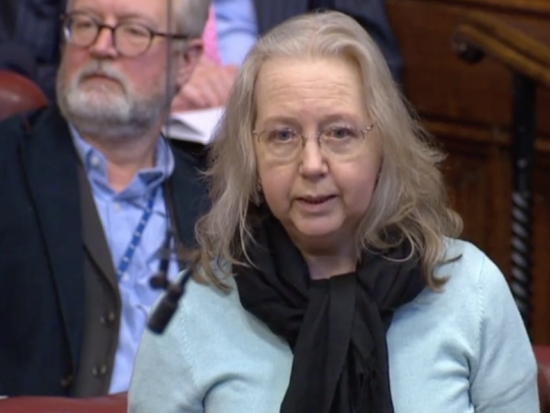
By Harry Scoffin
The House of Lords was told yesterday that Leasehold Knowledge Partnership had warned ministers and their officials as early as 2015 over the ground rent and leasehold houses scandals that were attacked in a highly publicised report by the Competition and Markets Authority last week.
LKP reported at the time that Sebastian O’Kelly and Martin Boyd, together with Sir Peter Bottomley and Jim Fitzpatrick, met with Brandon Lewis, then the housing minister, to flag the problem of leasehold houses:
The trend of housebuilders to build leasehold houses which would formerly be freehold was deplored by LKP / Campaign against retirement leasehold exploitation.
“This is catching out aspirant first time buyers who have spent many years in rented accommodation, only to find that they are only long term tenants in leasehold,” Mr Fitzpatrick informed the minister.
Housing minister Brandon Lewis meets Campaign against retirement leasehold exploitation – Better Retirement Housing
Brandon Lewis, the housing minister, this week met the Leasehold Knowledge Partnership / Campaign against retirement leasehold exploitation, accompanied by its patron MPs Sir Peter Bottomley and Jim Fitzpatrick. The meeting covered the following: Lease forfeiture: LKP / Campaign against retirement leasehold exploitation says this nuclear weapon of freeholders should be ended as it can give rise to unjustifiable cash windfalls.
In that private meeting they had raised, amongst other issues, the onerous ground rent clauses being inserted into leases on new-builds by plc housebuilders.
In the Lords yesterday, Liberal Democrat peer Baroness Grender referenced the CMA’s verdict and highlighted that the timetable for leasehold and commonhold reform has slipped.
Sajid Javid had promised legislative action by the summer of 2018, she said:
The Labour party’s Lord Kennedy of Southwark also weighed in, demanding to know how government could justify the “scandalous” behaviour of some developers, freehold owners and managing agents who have “ripped off” consumers “with ever-escalating ground rents, service charges, commission fees and, frankly, dodgy sales practices, which effectively make homeowners tenants in their own homes.”
Baroness Grender’s spirited intervention was welcomed by campaigners last night, who said that it was “progress” to see the chamber finally “awoken from its slumber”.
The Liberal Democrat politician was instrumental in forcing government to commit to a ban on lettings fees, which galvanised the movement for more throughgoing reform of renters’ rights.
Ahead of the Tenants Fees Bill becoming law in January last year, she said:
“It has been a long journey to get to this point. When I first proposed this change in 2016 through a Private Member’s Bill, it was a flat “no” from the Conservative Government. However, they could not keep ignoring the overwhelming evidence that people on low incomes or benefits who were renting privately were being ripped off with shocking admin fees.”
Her comments have been picked up by the National Leasehold Campaign, with netizens on the 17,000-strong Facebook group expressing hope that the Liberal Democrat politician can pressure government to deliver on the commitments it has already made over leasehold and commonhold reform.
Campaigners suggest Baroness Grender could play a key role in building a cross-party coalition for law change in the House of Lords, a chamber historically resistant towards moves to end landlord-controlled leaseholds.
The renters’ champion was also a longstanding speechwriter to former Liberal Democrat leader Paddy Ashdown.





 We are going to court if necessary to get ripped off leaseholders their money back, CMA tells BBCR4 MoneyBox
We are going to court if necessary to get ripped off leaseholders their money back, CMA tells BBCR4 MoneyBox






















All possible congratulations to the dedicated LKP team. Every leaseholder owes a debt to their common sense persistences
The scandal continues. The freeholds (and associated ground rent incomes) are now quickly sold on so as to avoid future interventions, to offshore pension funds, often in Jersey or Guernsey or the Isle of Man or the BVI. As the buyer company has a different name, there can be no repercussions for the plc developer who sold it. Yet there are sometimes beneficial owners of the same name in both companies and on one occasion I even found a development company who had sold its freeholds to another development company and vice verse, in other words almost a straight swap, which appears to be enveloped in an attempt at beneficial ownership obfuscation.
This needs investigating.
Another scandal is the way in which poorly finished new homes are being handed over with really major defects. The new owners have to take legal action with all the associated costs and typically the developer only settles on the courtroom steps, with the requirement that the customer signs a non-disclosure agreement and pays their own costs.
This also needs to be investigated and must be stopped.